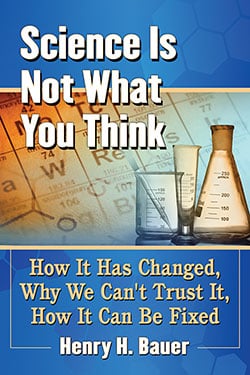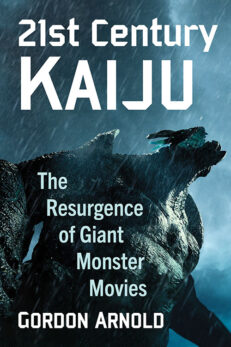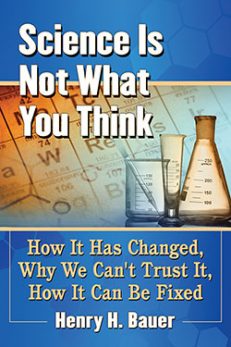Science Is Not What You Think
How It Has Changed, Why We Can’t Trust It, How It Can Be Fixed
$35.00
In stock
About the Book
This book discusses the ways in which science, the touchstone of reliable knowledge in modern society, changed dramatically in the second half of the 20th century, becoming less trustworthy through conflicts of interest and excessive competitiveness. Fraud became common enough that organized efforts to combat it now include a federal Office of Research Integrity. Competent minority opinions are sometimes thereby suppressed, with the result that policy makers, the media and the public are presented with biased or incomplete information. Evidence tending to challenge established theories is sometimes rejected without addressing its substance. While most would agree in the abstract that science can go wrong, few would consider—despite interesting contrary evidence—that official consensus about the origins of the universe or the causes of global warming might be mistaken.
About the Author(s)
Bibliographic Details
Henry H. Bauer
Format: softcover (6 x 9)
Pages: 260
Bibliographic Info: notes, bibliography, index
Copyright Date: 2017
pISBN: 978-1-4766-6910-6
eISBN: 978-1-4766-2823-3
Imprint: McFarland
Table of Contents
Table of Contents
List of Figures viii
Preface 1
Introduction and Synopsis 7
1. How Science Has Changed 13
Precursors of Modern Science 14
Three Eras of Modern Science 15
Science Today Is No Less Fallible Than in the Past 24
Science and Contemporary Society 26
2. Science Is Not Methodical 34
The Scientific Method Explains Little About Today’s Science 35
Why Has Science Been Successful? 42
3. Some Other Misconceptions About Science 46
Science and Evidence: A Love-Hate Relationship 46
Replication and Reproducibility 53
Falsifiability of Scientific Theories 56
Scientific Literacy 59
4. Science Is Many Things 65
Science Includes Which Subjects or Fields? 66
Science as Truth and Authority 67
Our Thinking Is Molded by Scientific Concepts 69
Scientific Institutions 70
Science Groupies and Hangers-on 71
Mimicking the Natural Sciences—Inappropriately 73
5. Scientists Have Many Faces 77
Scientists as Individuals 79
The Cultures of Science 84
Present-Day Careers in Science 96
6. How Science Really Gets Done 99
From Frontier Science to Textbook Science 100
Three Aspects of Scientific Activity 104
Diversity of Science 105
Peer Review 106
Resistance to Progress 109
Premature Discoveries 111
Scientific Revolutions 112
The Importance of Luck in Science 114
How Science Gets Done Best 119
7. What Exactly Is “Scientific Knowledge”? 121
Facts and Theories: Maps and Stories 121
Over-Reliance on Science 128
8. Statistics 135
Being Misled by Statistics 135
Correlation Is Not Causation 136
Interpreting Correlations 138
Aggregation and Dis-Aggregation 139
Statistical Significance and P Values 142
Effect Size 144
Margin of Error 145
Sampling 145
Differing Conceptual Approaches in Statistics 147
Summary: What Everyone Should Know About Statistics 149
9. Unlike Physics and Chemistry? 151
Social and Behavioral Sciences 151
Medical Science 155
A Little Learning Can Be a Dangerous Thing 158
Fringe Science, Alternative Science, Pseudo-Science 162
Minority Views Within Mainstream Science 169
Knowledge to Guide Research—or Ready to Be Applied? 170
Science and Technology 171
10. How Scientific Knowledge Becomes Known 174
From Science to Public Knowledge 174
Who Can Speak for Science? 177
What the Public Gets to Know: Let the Buyer Beware 181
What Policy Makers Get to Know 182
What Scientists Know and Get to Know 183
11. Science Needs Tough Love 187
Reprise: The Predominant Scientific Consensus Is Not Always Right 188
Which of Today’s Scientific Consensuses Might Be Wrong? 190
Where to Turn for the Soundest Judgment
on Technical Issues? 191
The Failure to Engage 192
12. A Science Court? 202
Caveats and Complications 205
What a Science Court Could Accomplish 216
Tough Love 220
Chapter Notes 223
Bibliography 231
Index 243
Book Reviews & Awards
“Bauer delves into issues that are at the core of science…recommended”—Choice; “excellent…highly recommended”—World Institute for Scientific Exploration





